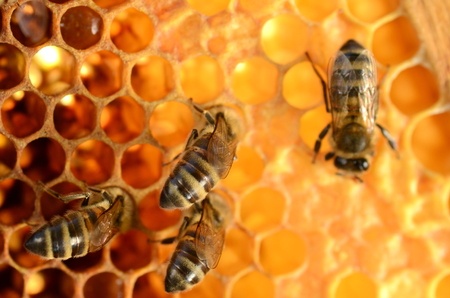Report Shows Importance of Honeybees to Natural Habitats
January 25, 2018
On January 10, a unique study was published in the journal of Proceedings of the Royal Society B, and its integrated worldwide data showed how honeybees are this world's most essential single pollinating species in natural ecosystems as well as a main contributor toward the functions of natural ecosystems.
This is the first analysis of its kind, and it was led by biologists from San Diego’s University of California. The results of this report, weaving together data from 80 networks of pollinator-plant interactions, identify honeybees as the most recurring visitor to flowers of non-crop plants—89 percent of the pollination networks in their native ranges and 61 percent in areas where humans introduced them.
According to this recent study, one in eight interactions between pollinators and non-agricultural plants is performed by honeybees, which is a serious feat considering there are tens of thousands of pollinators throughout the world. "Biologists have known for a while that honeybees are widespread and abundant—but with this study, we now see in quantitative terms that they are currently the most successful pollinators in the world," says Keng-Lou James Hung, the study’s lead author, a former graduate student of UC San Diego's biological sciences division, and now an Ohio State University postdoctoral researcher.
Honeybees, native to Southern Europe, the Middle East, and Africa, are now naturalized in most global ecosystems due to human intervention. Feral honeybee populations are fairly healthy all over the world, but the researchers noted that managed honeybee colonies are threatened by many factors, such as pesticides, habitat loss, climate change, parasites, and pathogens. "Although they appear to have a disproportionate impact on natural ecosystems, surprisingly we understand very little about the honeybee's ecological effects in nonagricultural systems," says co-author David Holway. "Looking to the future, this study raises a lot of new questions."
In San Diego, for example, where honeybees aren’t native, they’re responsible for three quarters of the pollinating visits to the area’s native plants. This is true even though over 650 native bee species and other pollinating insects are in San Diego County. "The consequences of this phenomenon for both native plants that did not evolve with the honeybee and for populations of native insect pollinators is well worth studying," says co-author Joshua Kohn.
Hung added, "Our study also nicely confirms something that pollination biologists have known for a long time—even in the presence of a highly abundant species that pollinates many plant species, we still need healthy populations of other pollinators for entire plant communities to receive adequate pollination services.”
Copyright: darios / 123RF Stock Photo


.jpg)




